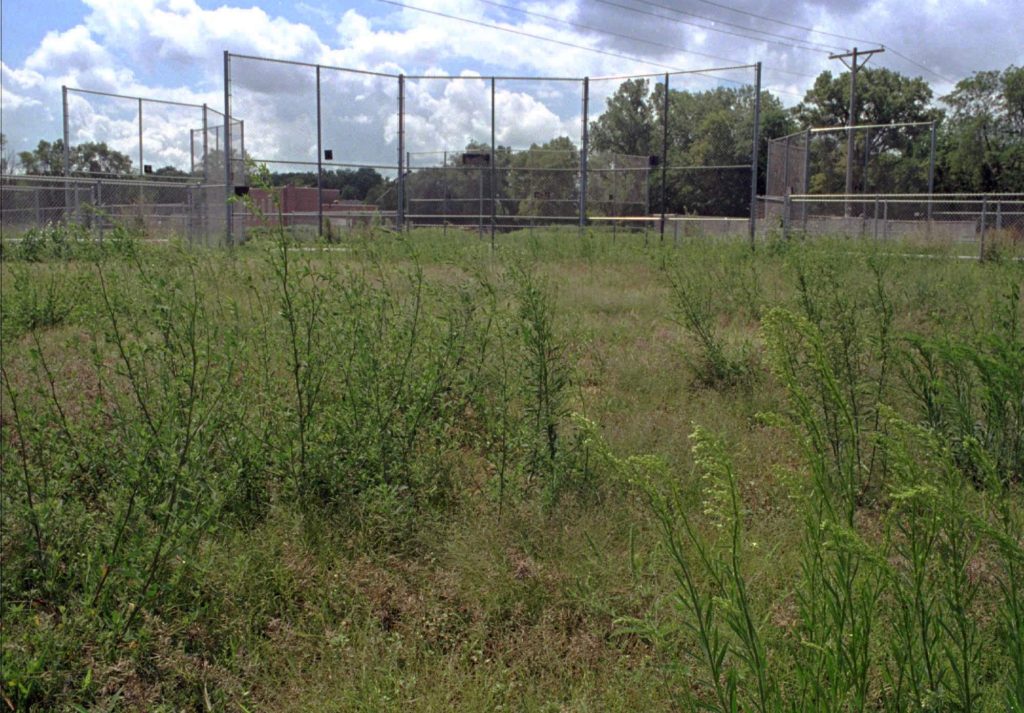The squeeze is on, and it might be a home run. Or not.
The petition placed online by Iowa City Girls Softball sounds the alarm.
“The property tax reform passed by the state legislation in 2013 could cost Iowa City $37 million to $52 million in lost property tax revenue over the next decade,” the petition reads.
“The City Council has charged our Parks & Recreation Department to come up with a cost recovery effort that will supplement this lost revenue. Currently, the Parks and Recreation Department is seeking approximately $25,000 a year from Iowa City Girls Softball. We need your support to tell the City Council and the Director of Parks & Recreation not to charge ICGS for our use of Napoleon Park. ICGS cannot operate a sustainable organization and be a revenue source for the City of Iowa City.”
Parks and Recreation Director Mike Moran says his agency is, just like in all previous years, preparing budget figures. And, implementation of a possible affiliate fee is on the table.
“But I’m not sure where the $25,000 figure came from,” Moran said by telephone Friday morning.

Potential affiliate fees have been discussed, but have not been set in stone. They’ll be a topic for further discussion at Tuesday night’s Parks and Recreation Commission meeting.
Such fees have previously been considered as a percentage of the facility rental fees the city charges other groups and the general public.
Renting a baseball/softball field in Iowa City, for instance, currently carries a price tag of about $10 per hour. The cost can increase if additional amenities, such as lighting, needs to be provided.
Affiliated fees have been tentatively discussed at 10 percent of the full rental fee, and would be applied to all groups, including the softball program.
Although city officials understand that property tax reform will ultimately impact the bottom line, and many have publicly stated their concern of diminished city services and offerings, this year’s budget work is fairly typical.
Each department is currently developing budget recommendations that will be passed to administrative staff and the City Council. Just like in previous years, the departments are charged with evaluating their services and seeking out possible efficiencies.
Finance director Dennis Bockenstedt said the city has not yet received the information it needs to more accurately project revenues. And, given the state’s promise to phase in property tax reductions and backfill a portion of the lost dollars, significant bites to the local budget may still be a couple of years down the road.
Speaking with various board commissioners throughout the city, however, it’s also clear that they are searching for savings and replacement funds in the wake of the unsuccessful push for a local-option sales tax.
If it had been successful, the additional sales tax would have offset a chunk of the state-mandated property tax reform.
Words like “private fundraising” are commonplace.
For most highly organized non-profits, such words don’t come as a shock since, for the past few years, fundraising experts have been advising a fresh focus on private alternatives to government funds.
Organizations like ICGS are often less prepared for such changes. Regardless, all find themselves in a squeeze play — trying to serve larger community needs with less public investment.
State lawmakers and the Governor have provided a huge boost to the commercial sector by generally slashing business property taxes and moving multifamily commercial properties, like apartment buildings, to lower residential rates. Such changes, they argue, will ultimately leave local governments in better shape as commercial ventures open or expand, providing residents better-paying jobs and increasing philanthropical giving.
Terrific. Here’s hoping the little league baseball, softball and soccer players — not to mention the elderly, poor and hungry — can hang in there long enough to benefit from the deluge.
This column by Lynda Waddington originally published in The Gazette on Nov. 16, 2014.
